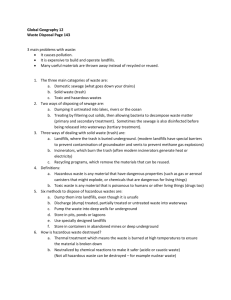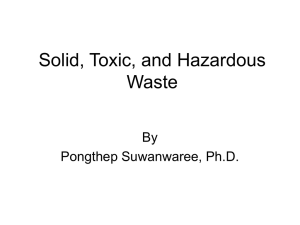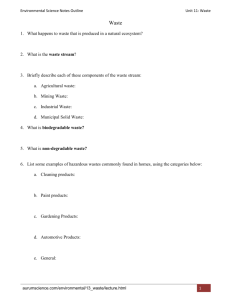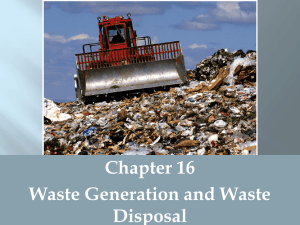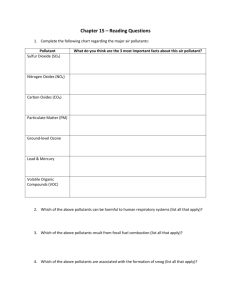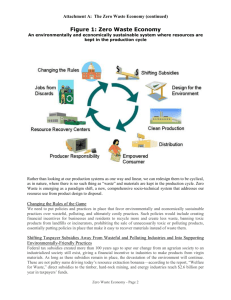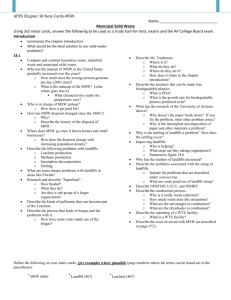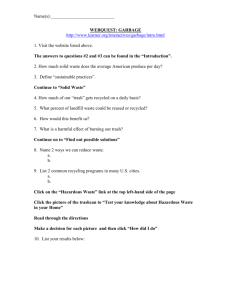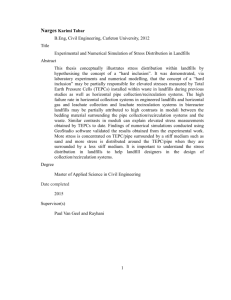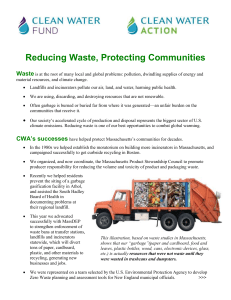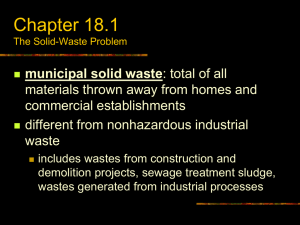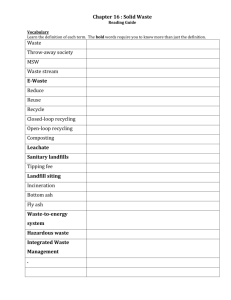Chapter 16 – Reading Questions
advertisement
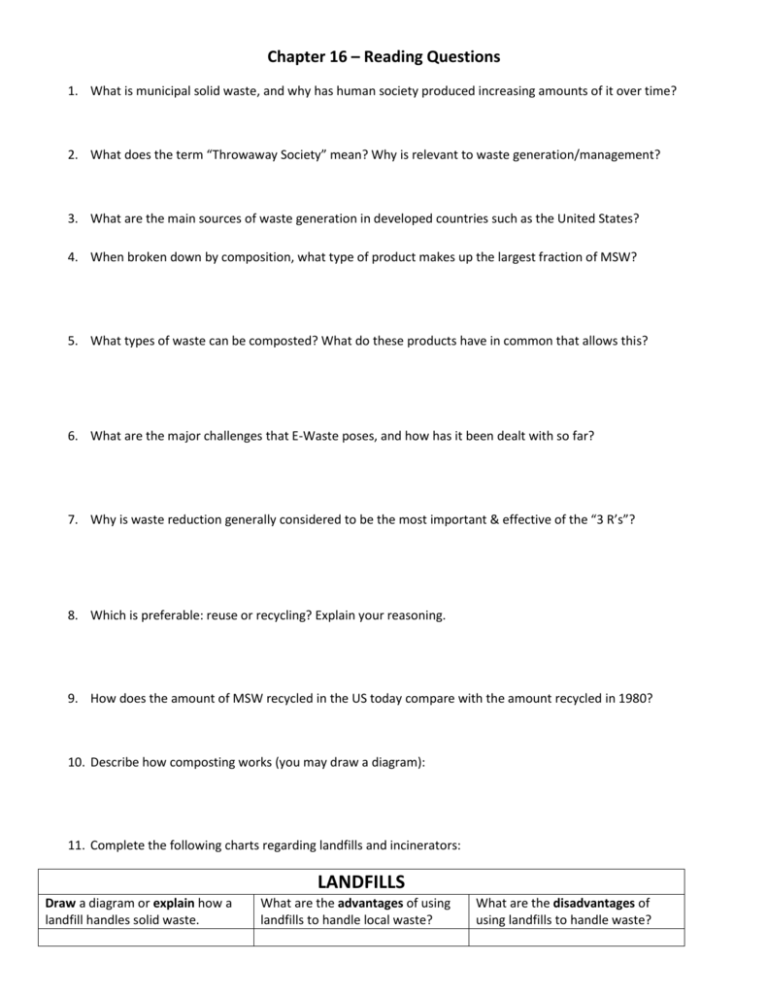
Chapter 16 – Reading Questions 1. What is municipal solid waste, and why has human society produced increasing amounts of it over time? 2. What does the term “Throwaway Society” mean? Why is relevant to waste generation/management? 3. What are the main sources of waste generation in developed countries such as the United States? 4. When broken down by composition, what type of product makes up the largest fraction of MSW? 5. What types of waste can be composted? What do these products have in common that allows this? 6. What are the major challenges that E-Waste poses, and how has it been dealt with so far? 7. Why is waste reduction generally considered to be the most important & effective of the “3 R’s”? 8. Which is preferable: reuse or recycling? Explain your reasoning. 9. How does the amount of MSW recycled in the US today compare with the amount recycled in 1980? 10. Describe how composting works (you may draw a diagram): 11. Complete the following charts regarding landfills and incinerators: LANDFILLS Draw a diagram or explain how a landfill handles solid waste. What are the advantages of using landfills to handle local waste? What are the disadvantages of using landfills to handle waste? 12. Why is leachate from landfills of concern? 13. What types of waste should not be handled by landfills? INCINERATORS Draw a diagram or explain how an incinerator works What are the advantages of using incinerators to handle local waste? What are the disadvantages of using incinerators to handle waste? 14. What are bottom ash and fly ash, and why are they problematic? 15. In addition to ash, what other problematic emissions can come from incinerators? 16.What are the major sources for hazardous waste production? 17.What was the main goal of the RCRA, and how does it attempt to accomplish it? 18.What is the Superfund? 19.How are abandoned non-operating sites of hazardous pollution handled when it is not possible to identify or locate a responsible party? 20.What are brownfields, and how are they typically addressed? 21.What are the principles of life-cycle analysis, and how does it help address the problem of waste generation? 22.Describe the principals of Integrated Waste Management, and how it might be applied to improve waste management in a city. Chapter 16 Vocabulary List Waste Throw-away society MSW Waste stream E-Waste Reduce Reuse Recycle Closed-loop recycling Open-loop recycling Composting Leachate Sanitary landfills Tipping fee Landfill siting Incineration Bottom ash Fly ash Waste-to-energy system Hazardous waste RCRA CERCLA National Priorities List Brownfield Life-cycle analysis
